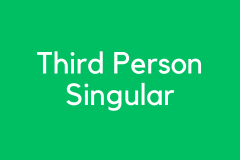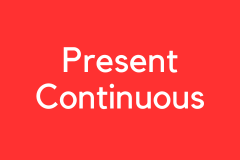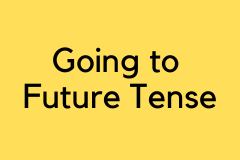Going to
Learn how to use the going to in the future tense in English.
Can you answer these grammar questions correctly?
Going to
be + going to + base verb
We use this form to talk about future plans. It means we have already decided to do something.
We use this structure, going to, to talk about future plans or intentions.
The words going to are often spoken as gonna in natural speech. Normally, we do not use this form in written English.
Questions
Use question words like what, when, where, who, why, and how to ask about future plans.
- What are you going to do?
- When are you going to get here?
- Who are you going to see?
- Where are you going to stay?
- Why are you going to do that?
- How are you going to get there?
Affirmative
In affirmative sentences, use going to after the correct be verb (am, is, are).
- I am going to call you.
- You are going to be fine.
- She is going to make a lot of money.
- He is going to be sorry.
- It’s going to rain soon.
- They are going to come by taxi.
- We are going to get in trouble.
Negative
In negative sentences, add "not" after the be verb. "Going to" stays the same.
- I am not going to say anything.
- You are not going to regret this.
- She is not going to work tonight.
- He’s not going to call you.
- It is not going to happen.
- They are not going to play.
- We are not going to make it.
Y/N Questions
For Yes/No questions, start with the be verb (am, is, are) and follow with going to.
- Are you going to eat that?
Yes, I am.
No, I’m not.
- Is she going to play?
Yes, she is.
No, she isn’t.










